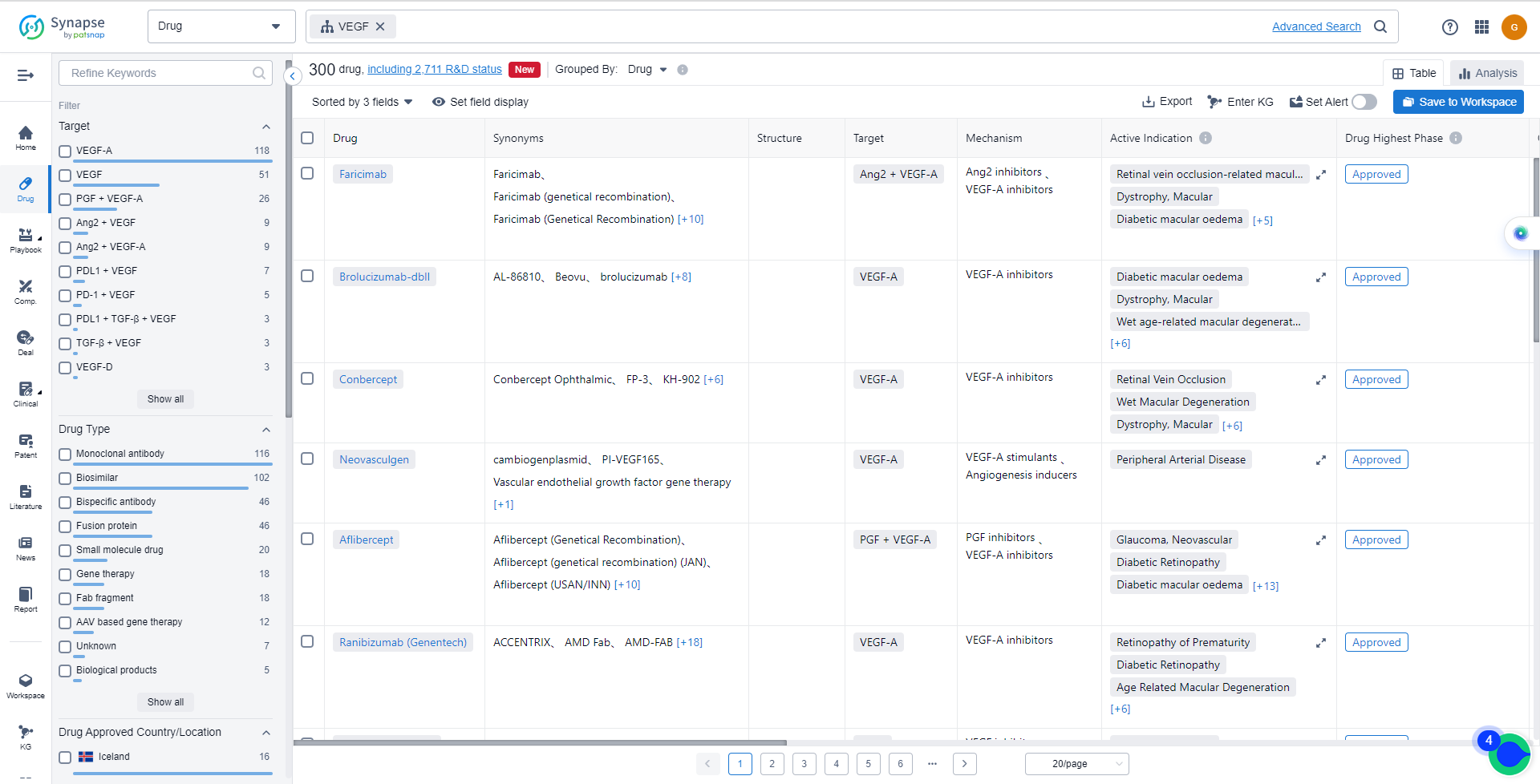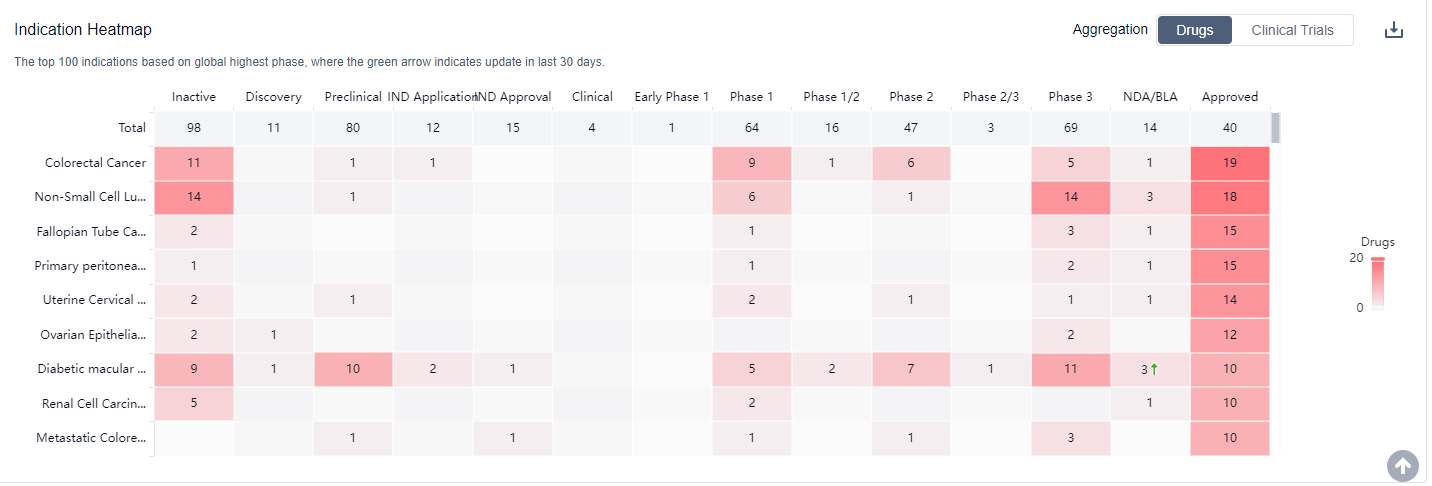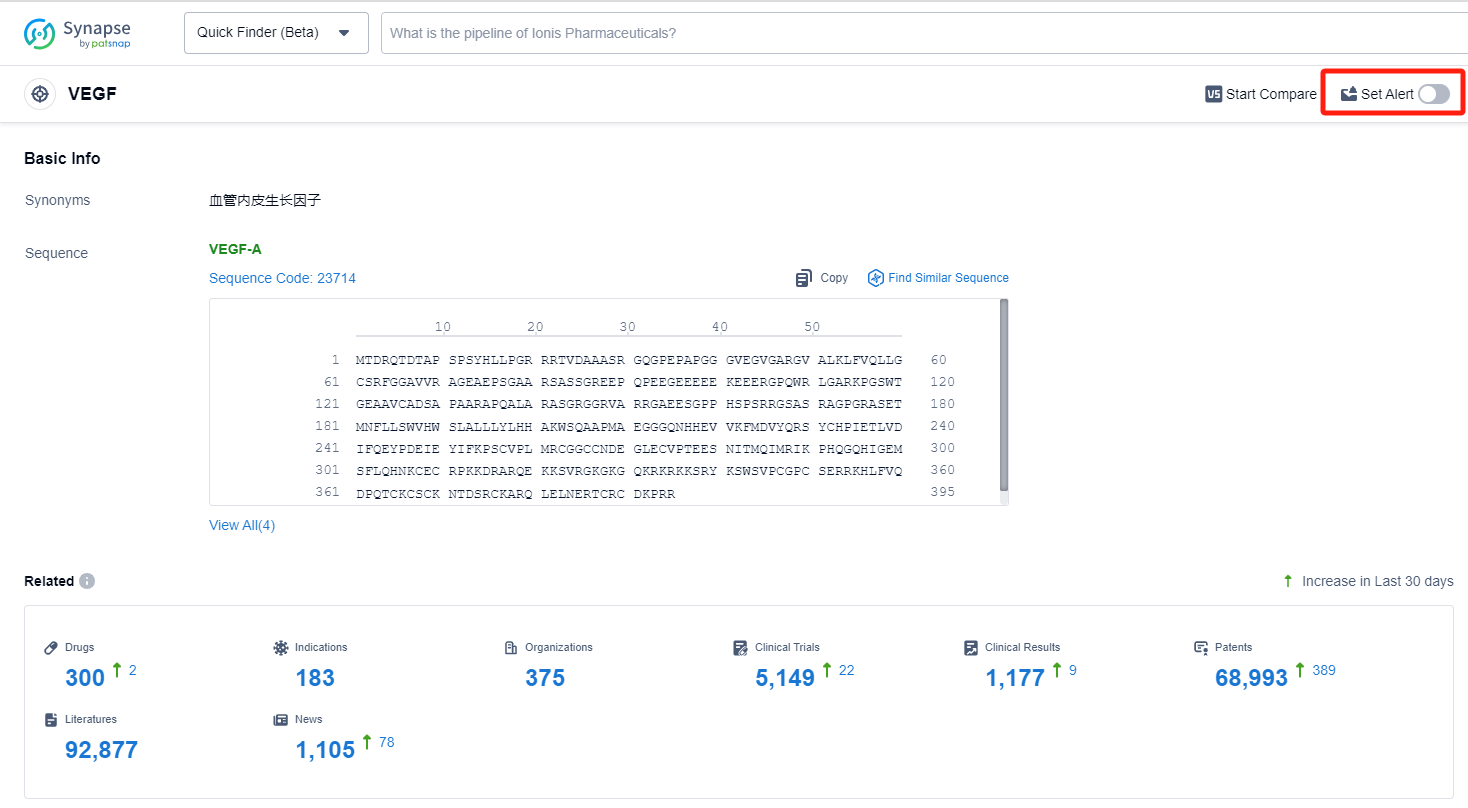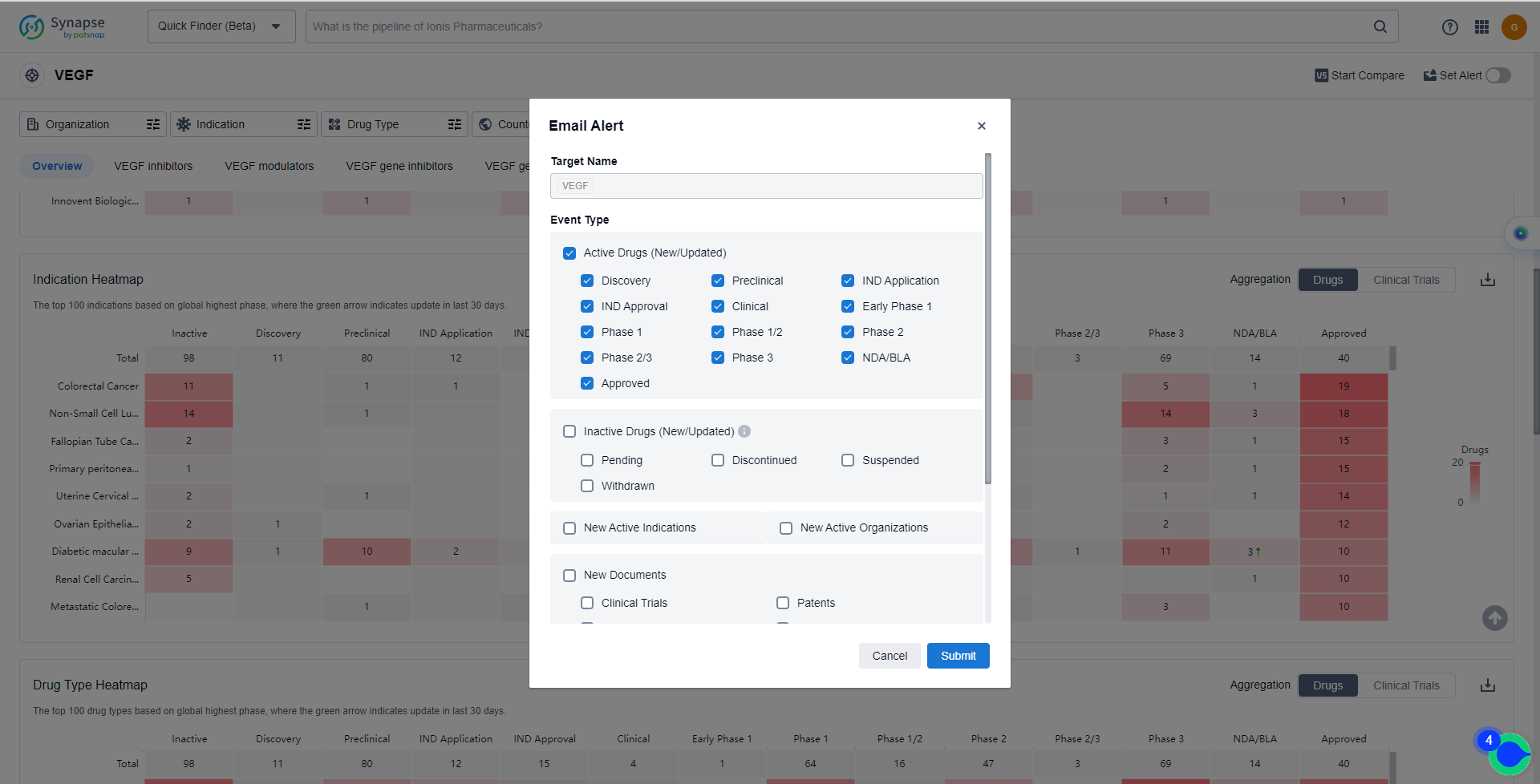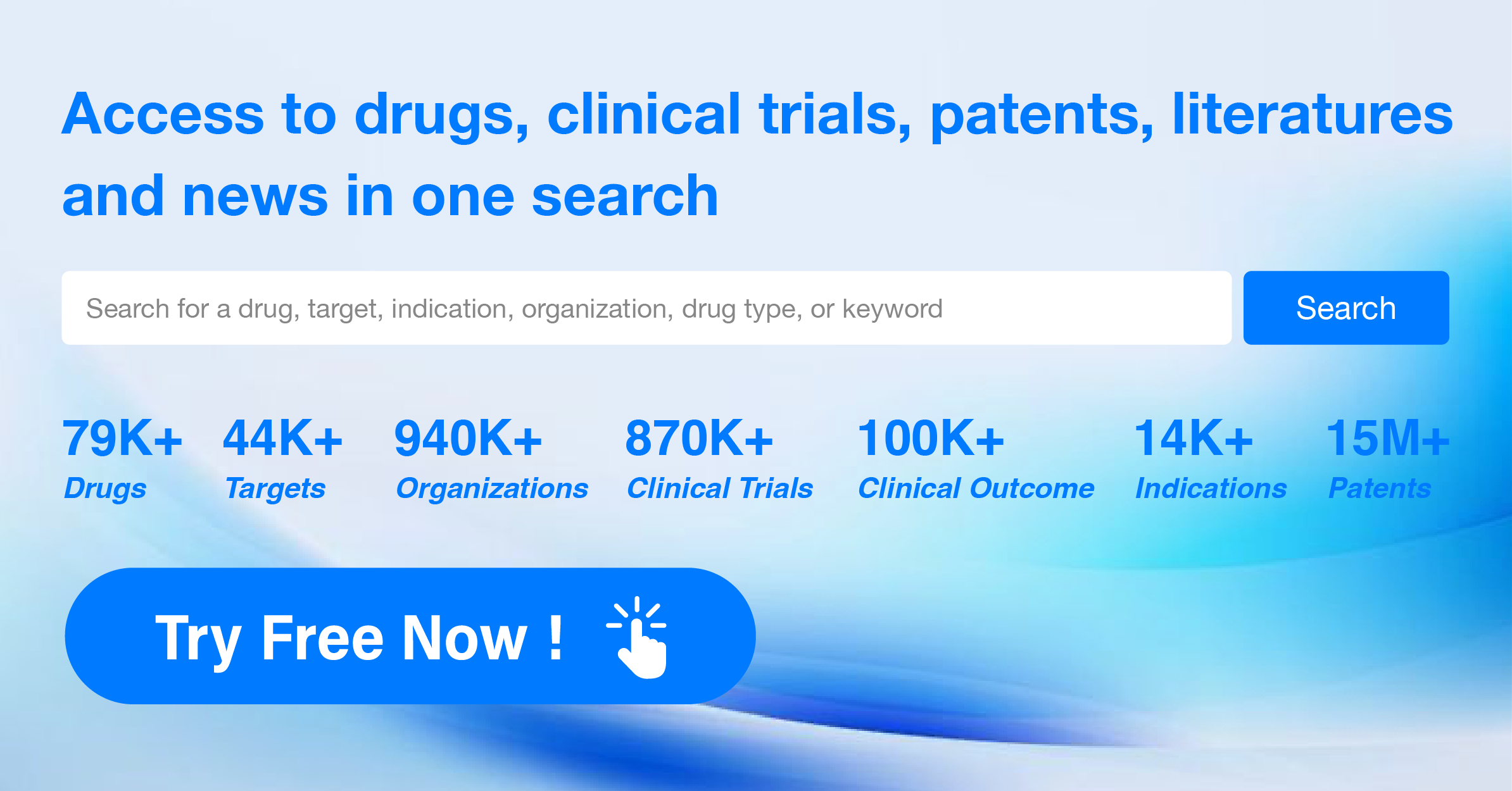Deciphering VEGF Inhibitors and Keeping Up with Their Recent Developments
VEGF, or vascular endothelial growth factor, plays a crucial role in the human body by promoting the growth of new blood vessels, a process known as angiogenesis. It is a protein that stimulates the formation of blood vessels during embryonic development and wound healing. In adults, VEGF helps maintain the integrity of existing blood vessels and supports the growth of new vessels in response to tissue damage or low oxygen levels. However, abnormal VEGF expression can lead to various diseases, including cancer and age-related macular degeneration. Understanding the role of VEGF is essential for developing therapies that target angiogenesis and regulate blood vessel growth in different pathological conditions.
The analysis of the target VEGF reveals a competitive landscape with several companies showing significant growth and R&D progress. Roche Holding AG, Novartis AG, and SAMSUNG BIOLOGICS Co., Ltd. are among the companies with the highest number of drugs in advanced stages of development. The approved indications for VEGF-targeted therapies cover a wide range of cancers and ophthalmic conditions, indicating the potential of these therapies in treating various diseases. Monoclonal antibodies and biosimilars are the most rapidly progressing drug types, suggesting intense competition in the market. China, the European Union, and the United States are leading in terms of drug development under the target VEGF. The future development of VEGF-targeted therapies is expected to be driven by continuous R&D efforts and global collaborations.
How do they work?
VEGF inhibitors are a type of medication that work by blocking the activity of vascular endothelial growth factor (VEGF). VEGF is a protein that plays a crucial role in the formation of new blood vessels, a process known as angiogenesis. In the context of biomedicine, VEGF inhibitors are primarily used in the treatment of various diseases characterized by excessive blood vessel growth, such as certain types of cancers and age-related macular degeneration.
By inhibiting VEGF, these medications can help prevent the growth and spread of tumors by reducing the blood supply that fuels their growth. In the case of age-related macular degeneration, VEGF inhibitors can slow down the abnormal growth of blood vessels in the retina, which can lead to vision loss.
VEGF inhibitors can be administered through different routes, including intravenous infusion or injection, and some are available in oral form. Common examples of VEGF inhibitors include bevacizumab, ranibizumab, and aflibercept. It's important to note that VEGF inhibitors may have potential side effects, such as high blood pressure, bleeding, and impaired wound healing, which should be carefully monitored during treatment.
List of VEGF Inhibitors
The currently marketed VEGF inhibitors include:
- Faricimab
- Brolucizumab-dbll
- Conbercept
- Neovasculgen
- Aflibercept
- Ranibizumab (Genentech)
- Pegaptanib sodium
- Bevacizumab
- Abicipar pegol
- Ivonescimab
For more information, please click on the image below.
What are VEGF inhibitors used for?
VEGF inhibitors are used in the treatment of various diseases characterized by excessive blood vessel growth, such as certain types of cancers and age-related macular degeneration. For more information, please click on the image below to log in and search.
How to obtain the latest development progress of VEGF inhibitors?
In the Synapse database, you can keep abreast of the latest research and development advances of VEGF inhibitors anywhere and anytime, daily or weekly, through the "Set Alert" function. Click on the image below to embark on a brand new journey of drug discovery!
